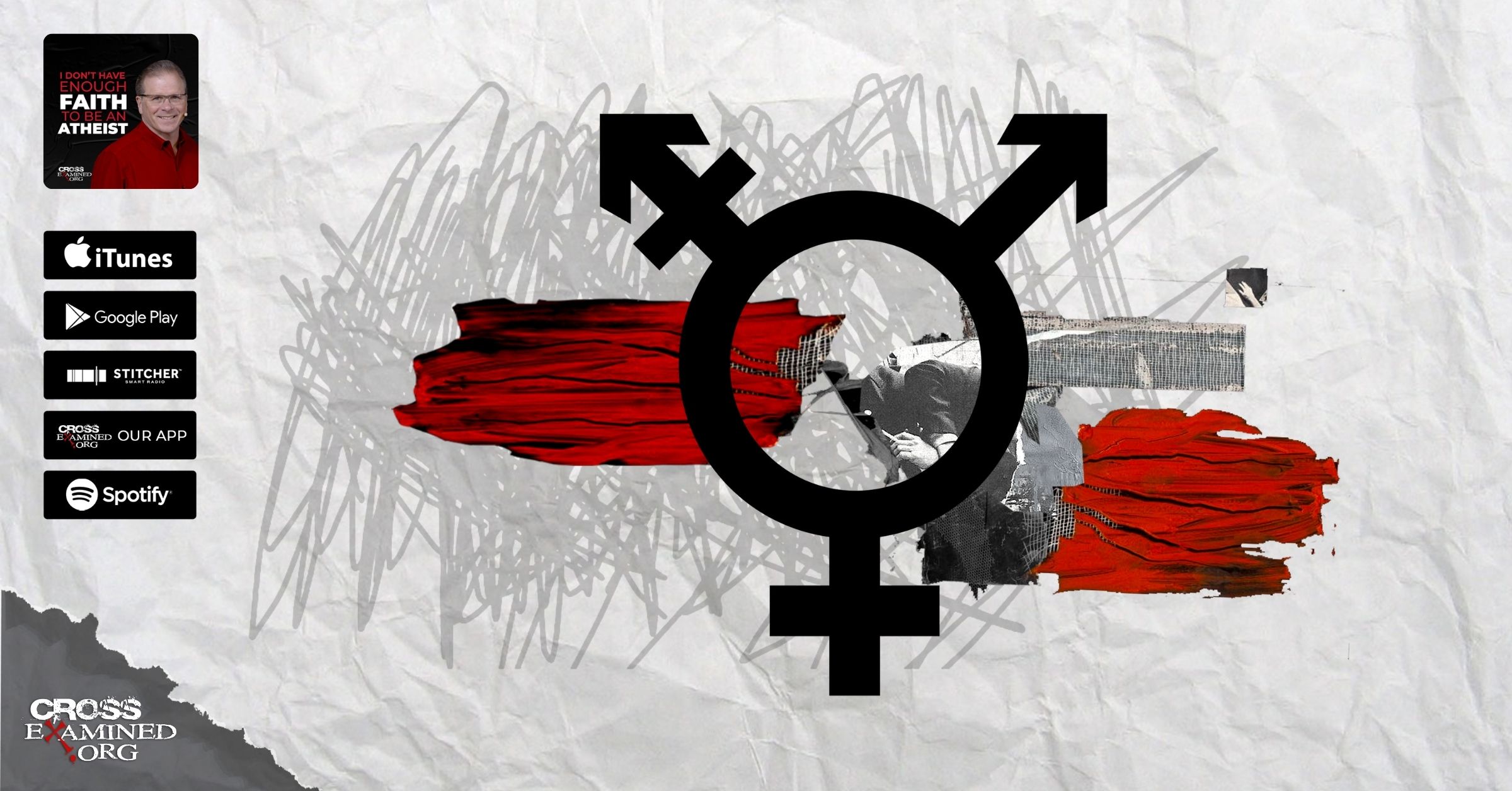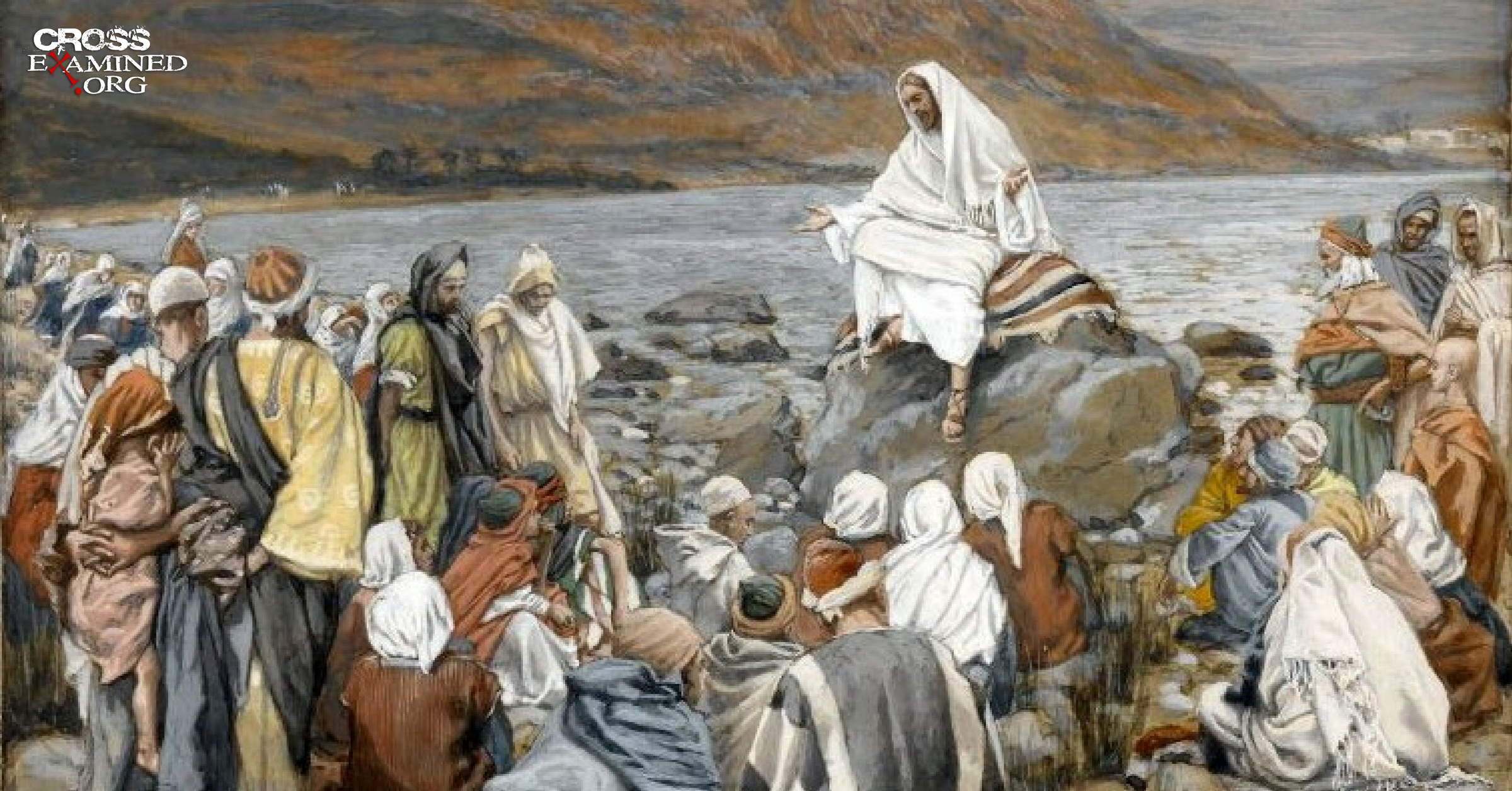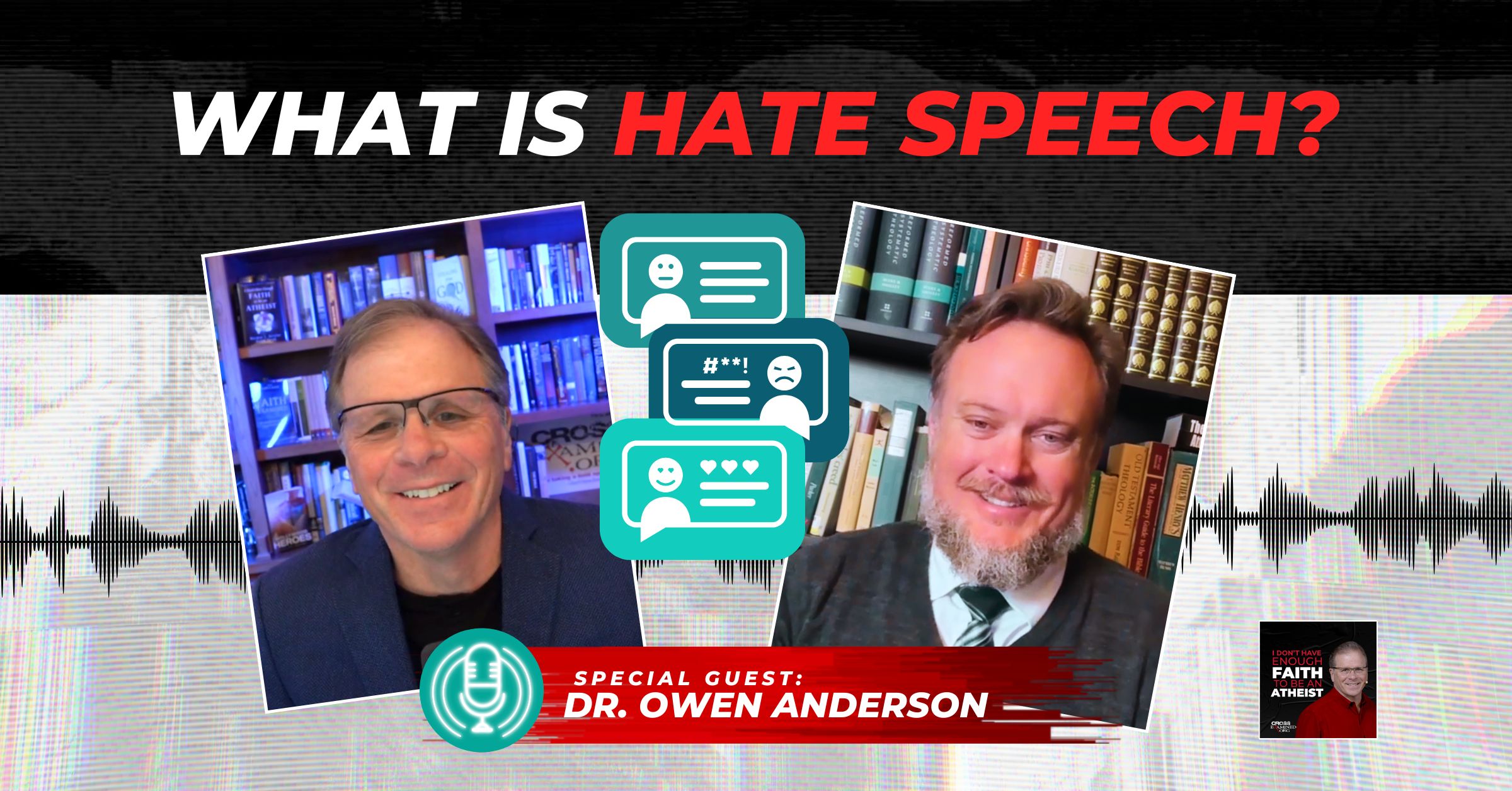Is Bart Ehrman Right When He Says That Acts Contradicts Paul’s Letters?
Agnostic New Testament scholar Bart Ehrman says, “the book of Acts in the New Testament contains historically unreliable information about the life and teachings of Paul.” In his book, Jesus, Interrupted Dr. Ehrman provides five examples of contradictions that exist between Paul’s letters and Acts.
Ehrman writes, “These are just a few of the discrepancies that one can find when one reads Acts horizontally against Paul’s letters. Many more can be discovered. What they show is that Acts cannot be relied upon for completely accurate detail when it describes the mission of the early apostles such as Paul.”
Since these contradictions are the five he handpicked for his book, he must feel like they’re some of the best. If the strongest examples aren’t even really contradictions, then that gives us a good reason to doubt Ehrman, not Luke.
-
After Paul’s Conversion, Did He Go Directly To Jerusalem To Confer With Those Who Were Apostles Set Before Him?
Leading off, Ehrman quotes Galatians 1:16-20: “I was pleased to reveal his Son to me, in order that I might preach him among the Gentiles, I did not immediately consult with anyone; nor did I go up to Jerusalem to those who were apostles before me, but I went away into Arabia, and returned again to Damascus. Then after three years, I went up to Jerusalem to visit Cephas and remained with him for fifteen days. But I saw none of the other apostles except James, the Lord’s brother. (In what I am writing to you, before God, I do not lie!)”
Ehrman then writes: “This emphatic statement that Paul is not lying should give us pause. He is completely clear. He did not consult with others after his conversion, did not see any of the apostles for three years, and even then, he did not see any except Cephas (Peter) and Jesus’ brother James. This makes the account found in the book of Acts very interesting indeed. For according to Acts 9, immediately after Paul converted he spent some time in Damascus “with the disciples”, and when he left the city, he headed directly to Jerusalem, where he met with the apostles of Jesus (Acts 9:19-30). On all counts, Acts seems to be at odds with Paul. Did he spend time with other Christians immediately (Acts) or not (Paul)?“
Let’s read Acts 9:23-25 thoughtfully for ourselves before we take a scholar’s word for it.
“When many days had passed, the Jews plotted to kill him, but their plot became known to Saul. They were watching the gates day and night in order to kill him, but his disciples took him by night and let him down through an opening in the wall, lowering him in a basket.“
Just how long of a period is ‘many days’? Looking elsewhere, we read that many days can be as long as 3 years! Take a look at 1 Kings 2:38-39: “And Shimei said to the king, “What you say is good; as my lord the king has said, so will your servant do.” So Shimei lived in Jerusalem many days. But it happened at the end of three years that two of Shimei’s servants ran away to Achish, son of Maacah, king of Gath…
So what about the journey to Arabia? Luke doesn’t mention it, but that doesn’t necessarily contradict Paul’s story in Galatians. This trip may have happened within Luke’s ‘many days’ in Acts 9:23, and Luke either didn’t know about it or didn’t mention it.
But let’s think about this for a moment. If Acts was written by someone with no access to the story of Paul’s conversion, why did he place it on the way to Damascus of all places? Damascus doesn’t even feature prominently in the rest of Acts.
But if Luke is using Galatians, he wouldn’t have put Damascus into his story while leaving out Paul’s trip to Arabia or to the passing of three years. Either Luke is carefully devious to include a small detail like Damascus while being a major blunderer at the same time by leaving out the trip to Arabia. Or, this casual correspondence about Damascus shows that Luke knew about Paul apart from his letter to the Galatians.
-
Did The Churches In Judea Know Paul?
Regarding Galatians 1:21-22, Ehrman writes: “Here again Paul is quite clear. Sometime after he converted, he went around to various churches in the regions of Syria and Cilicia, but he “was still unknown by sight to the churches of Judea” (Galatians 1:21-22). This has struck some scholars as odd. According to the book of Acts, when Paul was earlier persecuting the churches in Christ, it was specifically the Christian churches in “Judea and Samaria” (Acts 8:1-3; 9:1-2). Why is it that Christians in the churches he had formerly persecuted didn’t know what he looked like? Wasn’t he physically present among them as their enemy earlier? According to Acts, yes, according to Paul, no.”
Acts 8:1-3 shows that Paul was persecuting the Jerusalem church, not the whole region of Judea. Acts 8:1 says that the believers in Jerusalem ‘were scattered throughout the regions of Judea and Samaria.’
They very probably would have told the other Christians they met about Paul’s persecutions. That means the Judean Christians would’ve known Paul by his big, bad reputation but not necessarily by sight. This just isn’t all that hard to think through.
-
Did Paul Go To Athens Alone?
Here’s Ehrman again: “Luke again appears to have gotten some details wrong. When Paul writes his very first letter to the Thessalonians, he indicates that after he had brought them to faith and started a church among them, he traveled to Athens. But he felt concerned about the fledgling new church and so sent his companion Timothy back to see how the Thessalonians were doing. In other words, Timothy accompanied Paul to Athens and then returned to Thessalonica to help build them up in the faith (1 Thessalonians 3:1–2). The book of Acts, however, is equally clear. There we are told that after Paul established the church in Thessalonica, he and Silas and Timothy founded a church in the city of Boroea; the Christians there then “sent Paul away to the coast, but Silas and Timothy remained behind” (17:14–15). Paul proceeded to send instructions that Silas and Timothy should meet up with him when they could. He traveled to Athens alone and met up with his two companions only after leaving the city for Corinth (17:16–8:5). This is another discrepancy hard to resolve: either Timothy went to Athens with Paul (1 Thessalonians), or not (Acts).”
This so-called contradiction is pretty weak sauce. Let’s read 1 Thessalonians 3:1-2 for ourselves: “Therefore when we could bear it no longer, we were willing to be left behind at Athens alone, and we sent Timothy, our brother and God’s coworker in the gospel of Christ, to establish and exhort you in your faith.”
Paul doesn’t tell us how he arrived in Athens, all these verses say is that Timothy was with him in Athens at some point. It also suggests that Paul was in Athens for some time before he sent Timothy back. That’s why he writes, “when we could bear it no longer.”
Now let’s look at Acts 17:14-15. It reads, “Then the brothers immediately sent Paul off on his way to the sea, but Silas and Timothy remained there. Those who conducted Paul brought him as far as Athens, and after receiving a command for Silas and Timothy to come to him as soon as possible, they departed.”
The Book of Acts clearly reports that a word was sent back telling Timothy to join Paul as quickly as possible. 1 Thessalonians 3 says Timothy was in Athens shortly afterward. Um, where exactly is the contradiction here?
-
How Many Trips Did Paul Make To Jerusalem?
Here’s Bart again: “According to Paul’s account, [the Jerusalem council] was only the second time he had been to Jerusalem (Galatians 1:18; 2:1). According to Acts, it was his third, prolonged trip there (Acts 9, 11, 15). Once again, it appears that the author of Acts has confused some of Paul’s itinerary – possibly intentionally, for his own purposes.”
Here’s what Paul actually writes in Galatians: “Then after three years, I went up to Jerusalem to visit Cephas and remained with him fifteen days. But I saw none of the other apostles except James, the Lord’s brother.” And here is Galatians 2:1: “Then after fourteen years, I went up again to Jerusalem with Barnabas, taking Titus along with me.”
There’s debate among Pauline scholars about whether or not what’s described in Galatians 2 is the Jerusalem council that we read about in Acts 15. Bart seems to think this is the only possible interpretation. He could very well be correct that it is. But where exactly does Paul say that this was only his second visit?
Acts 11 says that between Paul’s two journeys, he did go to Jerusalem to bring aid to those harmed by the famine. But why would Paul have mentioned this trip to the Galatians? It had nothing to do with him meeting with the apostles about the Gospel message that he was preaching to the Gentiles.
I’m seeing little reason to think that Bart’s claim that Acts is unreliable is correct. But let’s give him one last shot.
-
Were The Congregations That Paul Established Made Up Of Both Jews And Gentiles?
Here’s Bart one last time: “According to the book of Acts, the answer is a clear yes. When Paul preaches in Thessalonica, Jews in the synagogue come to faith in Christ, as do non-Jewish Greeks (Acts 17:4). Paul indicates just the opposite. When he writes to this church in Thessalonica, he recalls how he converted them to faith in Christ and speaks of how they “turned to God from idols” (1 Thessalonians 1:9). Only pagans worshiped idols.”
Let’s again look at the actual texts in question. Here’s Acts 17:4: “And Paul went in, as was his custom, and on three Sabbath days he reasoned with them from the Scriptures, explaining and proving that it was necessary for the Christ to suffer and to rise from the dead, and saying, “This Jesus, whom I proclaim to you, is the Christ.” And some of them were persuaded and joined Paul and Silas, as did a great many of the devout Greeks and not a few of the leading women.”
And here’s 1 Thessalonians 1:9: “For they themselves report concerning us the kind of reception we had among you, and how you turned to God from idols to serve the living and true God.”
At first, it seems like Ehrman has a point, but there seems to be a bit over-reading going on here. Paul’s audience would understand that the ‘you’ that turned to God from idols is an exaggerated statement. In an epistle written to a group, Paul is referring to one portion of his audience rather than another. Paul tells the Corinthian church that “you are proud.” But he’s not referring to the entire church at Corinth as if they were all celebrating sin within the congregation! (1 Cor. 5:2)
As NT scholar Craig Keener points out, Paul’s letter to the Thessalonians has allusions to ideas that wouldn’t make sense to Gentiles lacking familiarity with Jewish eschatological thought. (1 Thessalonians 4:14-17) Paul also distinguishes believers from Gentiles, whose ways they shouldn’t copy, as if even the Gentile believers understand they’ve switched to a new lifestyle. (1 Thess 4:4-5) These points imply there where at least some Jewish believers in the church who could explain such elements to others.
Plus, when Acts says that Paul reasoned in the synagogues for three weeks, it doesn’t mean that Paul was only there for three weeks. You’ll see why that’s relevant in a moment. In her book Hidden in Plain View, Lydia McGrew points out that there’s a couple of interesting interlocking details in 1 Thessalonians that relate to these texts. In 1 Thessalonians 2:2, Paul says, “but though we had already suffered and been shamefully treated at Philippi, as you know, we had boldness in our God to declare to you the gospel of God in the midst of much conflict.”
We read in Acts 16:19-35 that Paul was mistreated in Philippi. He was beaten and put in jail even though Paul was a Roman citizen and wasn’t given a fair trial. Paul even had the officials from the city come and apologize to him and escort him out. According to Acts, where does Paul go next? Thessalonica. So this was all very fresh to Paul when he arrived there, and you can bet the Thessalonians heard all about it.
So while Luke focuses on the Jewish and God-fearing Greek converts, if he was just copying 1 Thessalonians, he would have made it clear that idol-worshipers were included in their number. And he would have made it more clear that Paul was in town long enough for the Thessalonians to know about his hard work ethic. (1 Thessalonians 2:9) It is interesting to note however that Paul reasoned with the Jews on the Sabbath, so he was probably working in the marketplace for the rest of the week, preaching the Gospel to whoever would have listened. (See Acts 17:17, 18:1-4.) I’m sure this would have included some idol worshipers.
Furthermore, Paul uncharacteristically rails against the Jews in his correspondence: “For you, brothers became imitators of the churches of God in Christ Jesus that are in Judea. For you suffered the same things from your own countrymen as they did from the Jews, who killed both the Lord Jesus and the prophets, and drove us out, and displease God and oppose all mankind by hindering us from speaking to the Gentiles that they might be saved—so as always to fill up the measure of their sins. But wrath has come upon them at last!” (1 Thess 2:14-16)
Elsewhere Paul prays fervently for his unbelieving Jewish kinsmen. (Rom 10:1) So what gives here?
The Thessalonians would have known the answer to this, as Acts 17:5-9 describes that the Jews spread a rumor that Paul was preaching against Caesar. They sparked a riot with the help of ‘the rabble’ and ran him out of town. They then followed Paul into Berea and used the same harmful tactics there. But as we’ve seen, the book of Acts is independent of 1 Thessalonians, but these details dovetail nicely with each other. The Thessalonians wouldn’t need an explanation of Paul’s indignation, they had witnessed his trouble up close, and one of their own — Jason — was dragged into it.
This goes against Bart’s earlier complaint that Luke’s account and Paul’s letters don’t mesh well. They seem to go together just fine being while remaining independent of each other. Luke perfectly explains why Paul would have spoken so strongly against the Jews to the Thessalonians, as well as why he spoke of his mistreatment in Phillipi.
Conclusion
With Bart’s top 5 examples of contradictions between Paul’s letters and the book of Acts, we’ve seen that his negative case simply is unsubstantiated and fails to give us a reason to distrust Luke as some sort of unreliable, blundering historian who is unconcerned with accuracy. In fact, historians acknowledge that Luke gets many nitty-gritty historical details right about Paul’s journeys, as I list out here.
There is a good reason a renowned classicist like EM Blaiklock remarked that “for accuracy of detail, and for the evocation of atmosphere, Luke stands, in fact, with Thucydides. The Acts of the Apostles is not a shoddy product of pious imagining, but a trustworthy record.”
Recommended resources related to the topic:
The New Testament: Too Embarrassing to Be False by Frank Turek (DVD, Mp3, and Mp4)
Why We Know the New Testament Writers Told the Truth by Frank Turek (DVD, Mp3 and Mp4)
The Top Ten Reasons We Know the NT Writers Told the Truth mp3 by Frank Turek
Counter Culture Christian: Is the Bible True? by Frank Turek (DVD)
Erik Manning is a Reasonable Faith Chapter Director located in Cedar Rapids, Iowa. He’s a former freelance baseball writer and the co-owner of a vintage and handmade decor business with his wife, Dawn. He is passionate about the intersection of apologetics and evangelism.
Original Blog Source: https://bit.ly/3239thk












Leave a Reply
Want to join the discussion?Feel free to contribute!